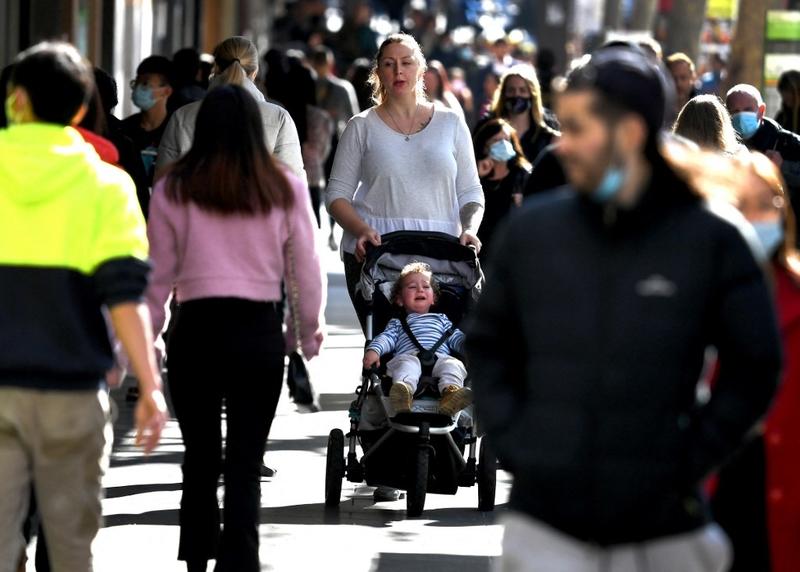 A mother pushes her child along a street in Melbourne on June 28, 2021, after the release of the 2021 Intergenerational Report saying Australia's economy will grow more slowly over the next 40 years than previously expected – largely due to lower population growth caused by pandemic-related migration decline and a lower fertility rate. Australia's Home Affairs Minister has committed to an overhaul of the country's "broken" migration system. (PHOTO / AFP)
A mother pushes her child along a street in Melbourne on June 28, 2021, after the release of the 2021 Intergenerational Report saying Australia's economy will grow more slowly over the next 40 years than previously expected – largely due to lower population growth caused by pandemic-related migration decline and a lower fertility rate. Australia's Home Affairs Minister has committed to an overhaul of the country's "broken" migration system. (PHOTO / AFP)
CANBERRA – Australia's Home Affairs Minister has committed to an overhaul of the country's "broken" migration system.
In a speech to a workforce summit on Wednesday, Clare O'Neil declared that Australia must shift away from "permanently temporary" migration and focus on making it easier for skilled workers to move to the country permanently.
The Australian government has identified international students as an untapped market, with many forced to leave after graduating from Australian universities and around 50 percent of those who stay working in lower-skilled jobs than they are qualified for
"Australia's migration system is broken. It is unstrategic. It is complex, expensive, and slow," she said.
"It is not delivering for business, for migrants, or for our population."
ALSO READ: Universities call for Australian migration reset
Net skilled permanent migration to Australia has stalled at approximately 30,000 annually for the past two decades while the number of visa holders in the country on a temporary basis has nearly doubled from one million in 2007 to 1.9 million.
O'Neil said significant structural reform was needed to rebalance programs, but it could take years to fix the system, making Australia an unattractive destination for migrants.
"It is relatively easy for a low skill, temporary migrant to come to Australia, but difficult, slow and not particularly attractive for a high-skill, permanent migrant to come here," she said.
The government has identified international students as an untapped market, with many forced to leave after graduating from Australian universities and around 50 percent of those who stay working in lower-skilled jobs than they are qualified for.
READ MORE: Report: Australian migration system in need of major overhaul
Accelerating recognition of qualifications gained overseas is also a priority.
Despite a national nurse shortage, qualified migrants to Australia can currently wait up to 35 months to have their qualifications recognized.


